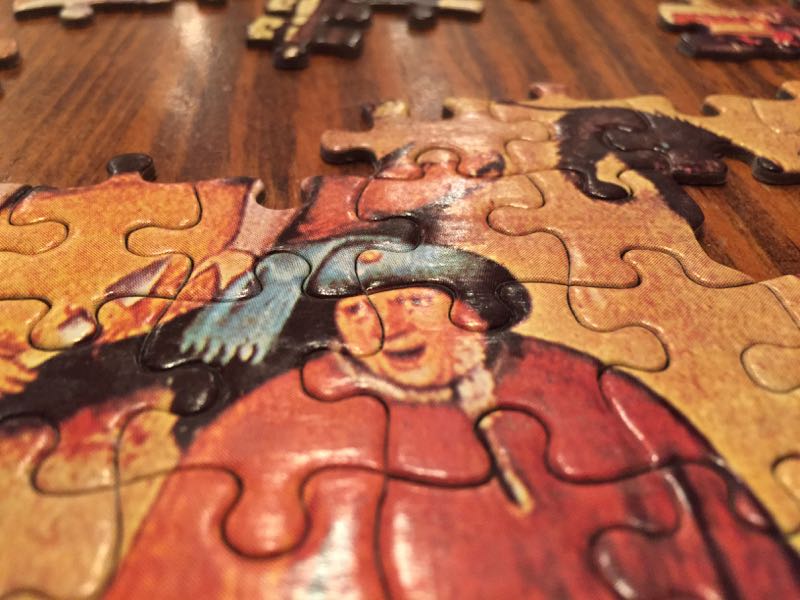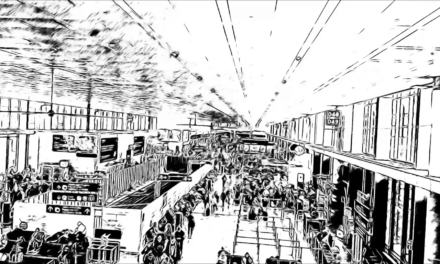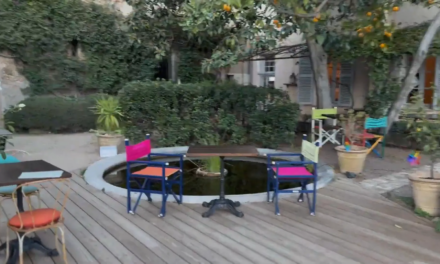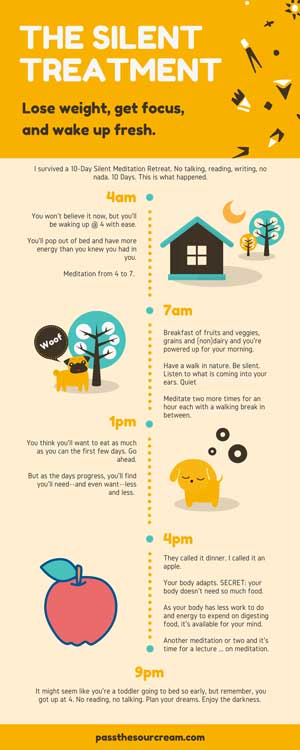
Who does jigsaw puzzles?

Jigsaw puzzles can be the perfect weekend “non-entertainment.”
You’re allowed to talk or just dig deep into your puzzling and stay quiet a focused. Sip your wine or enjoy your tea, snack or have dinner if you’re not done. It’s somehow both passive and active. You have to actively pay attention, but you can zone out and stare into colors. You’re allowed to leave for a while and return later. If the puzzle is so difficult that it’s just not rewarding, come back later when some more has been filled in and see if there’s an area to focus on.
Puzzling Strategies
I’ve wondered if there are strategies to being a better puzzler. I’m sure there are, but I don’t know them. Do you focus on a certain color? Do you look at the box and your pieces? Do you narrow it down to a little area of the puzzle and look only for that? Or find a piece in the melee and figure out where it goes? My goals for the next few days are lofty and slow.
There are some bizarre scenes in this Pieter Bruegel puzzle! If you look closely, which you have to if you’re going to make any progress, you’ll find some odd scenes going on. Apparently, Bruegel painted such peasant landscapes with all sorts of regular life goings-on, but when you’re searching for just the right angle and that matching color, you notice the butcher (?) with his face planted on his huge cutting board, arms stretched to his sides and … who knows what’s going on here.
But some puzzles are truly too difficult.
It’s not fun when it takes too long to get a single piece. I’m into delayed gratification as much as the next guy (OK, actually more), but if it takes 10 minutes to then … not even get a piece then either I should go back to the football game or we need to do a puzzle in the triple digits.

If you have time to do a puzzle, you have time.




























